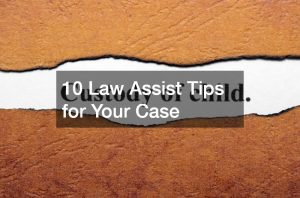- Business bankruptcy filings have risen in 2022, largely due to the pandemic’s impact on companies.
- Signs of serious business debt include struggle to pay bills, over-reliance on credit and loans, and reduced cash flow.
- A drop in credit score can indicate financial struggles and affect various aspects of your business.
- Solutions to business debt include debt consolidation, creditor negotiation, expense reduction, and potentially filing for bankruptcy.
- Early detection and action and professional help can help businesses manage debts and return to financial stability.
Running a successful business can be challenging; sometimes, debt is an inevitable part of the process. While a small amount of debt can be healthy for a company, excessive debt can be a red flag that something is not going as planned. Recognizing the signs of serious business debt can help you take the right steps to address the situation and get your business back on track. Here’s what you need to know about business bankruptcies, signs that your business is in serious debt, and how to deal with it.
Business Bankruptcies Today
In 2022, about 13,000 businesses filed for bankruptcy in the United States. This is a significant increase from 2021, when only about 7,000 firms filed. The pandemic has significantly impacted businesses, causing many to struggle financially and ultimately leading them to file for bankruptcy.
Signs of Serious Business Debt
While some amount of business debt is normal, there are sure signs that your business is in serious debt. Here are some of those signs:
1. Struggling to Pay Bills
One of the most obvious signs that your business is in serious debt is if you are struggling to pay bills and employees. If your accounts payable are piling up, and vendors are calling to collect payments, it’s time to look closely at your finances. If you are having difficulty making payroll or have to delay payments to employees, this is a significant sign that your business is severely impacted by debt. It is essential to take immediate action to avoid further troubles and make the necessary changes to get back in a better position.

2. Maxed Out Your Credit
If you have maxed out your credit cards, loans, or lines of credit with no room to charge additional expenses, your business is in financial hardship. Maxing out your credit indicates that you are not generating the income required to support your business expenses, and you are forced to rely on borrowing to keep your business afloat. Additionally, it drastically reduces your credit utilization, which can hurt you more in the long run.
3. Constantly Relying On Loans
If you constantly rely on loans to the point that you cannot afford to pay them back before borrowing again, your business is in serious debt. This means you are not generating enough revenue to cover the obligations of your business expenses. Taking out additional loans only piles up more debt and adds more interest charges, making it harder for you to pay it back.
4. Lack of Cash Flow
The lack of cash flow is another sign your business is in serious debt. Without steady cash flow, it becomes arduous to keep up with daily expenses, which ultimately impacts the success of your business. It can happen to any business, but it can be avoided with proper planning. Implement strategies that can help improve your cash flow, such as incentivizing customers for early payments, adjusting payment terms, or offering discounts on early payments.
5. Your Credit Score Has Dropped
Your credit score is another way to measure the financial health of your business. If your credit score has dropped, it may be a sign that your business is struggling financially. If you find that you are taking longer to pay off bills, it will reflect negatively on your credit score. If your credit score drops dramatically, it can impact other areas of your business, such as getting approved for loans, suppliers refusing to sell to you on credit, or even making it more difficult to get new customers.
Ways to Deal with Serious Business Debt
If your business is struggling with debt, there are some ways you can deal with it. Here are some of them:

Consolidate Debt
Consolidating your debts can help simplify payments and potentially lower interest rates. This involves taking out a loan to pay off all your debts, leaving you only one monthly payment.
Negotiate with Creditors
Communicate with your creditors to negotiate payment terms or reduced interest rates. They may be willing to work with you if they see that you are trying to pay off your debts.
Cut Expenses
Take a hard look at your expenses and identify areas where you can cut costs. This may include finding more affordable suppliers, reducing overhead costs, or downsizing your business operations.
File For Bankruptcy
Lastly, you might need to file for bankruptcy if it’s unavoidable. Chapter 7 bankruptcy is a liquidation bankruptcy where your assets are sold to pay off creditors, which can be a great option if you have a lot of assets. It’s important to hire an experienced Chapter 7 bankruptcy lawyer to help you with this. They can guide you through the process and protect your rights.
Dealing with serious business debt can be overwhelming, but it is crucial to address the issue before it becomes unmanageable. Watch for warning signs and take action as soon as possible. With proper planning and strategies in place, you can get your business back on track and become financially stable once again. Remember, seeking professional help is always an option and can provide valuable guidance in navigating this challenging situation. So, don’t hesitate to reach out for assistance if needed. Keep your business thriving by staying proactive and addressing potential debt concerns before they become major roadblocks.






